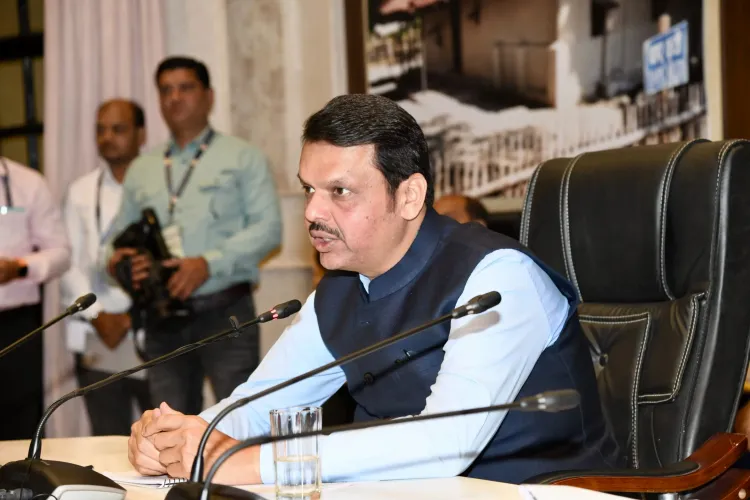Maharashtra Government Refers Bill to Joint Select Committee to Tackle Urban Naxal Threat

Nagpur, Dec 18 (NationPress) Chief Minister Devendra Fadnavis presented the Maharashtra Special Public Security Bill in the state assembly on Wednesday, stating that its purpose is to combat the urban naxal threat and to enable more effective measures against certain unlawful activities conducted by individuals and organizations within the state.
He emphasized that the bill does not seek to silence legitimate dissent but aims to dismantle the strongholds of urban naxals.
Furthermore, he announced that the bill will be sent to the joint select committee to clarify concerns from various organizations, with the intention of passing it during the upcoming monsoon session of the state legislature in July.
The proposed legislation outlines penalties and imprisonment for unlawful organizations while granting authorities the power to seize properties and confiscate assets. This bill is modeled after the Public Security Act enacted by states such as Chhattisgarh, Telangana, Andhra Pradesh, and Odisha to effectively deal with unlawful activities linked to naxal front organizations.
The government asserts that this legislation is crucial to curtail the illegal activities of these organizations through effective legal frameworks, as the current laws are insufficient to address the naxal threat.
According to the bill, the confiscated materials from naxal activities indicate the existence of 'safe houses' and 'urban dens' linked to the Maoist network operating within Maharashtra's cities. It states that the operations of naxal organizations and their affiliates are inciting unrest among the populace, promoting armed rebellion against constitutional authority, and disturbing public order in the state.
Unlawful activity is defined as any act that poses a risk or threat to public order, peace, and tranquility or disrupts the maintenance of public order or interferes with the administration of law and its established institutions and personnel.
An unlawful organization is described as one that engages in or supports unlawful activities through any means, directly or indirectly.
If a member of an unlawful organization participates in its meetings or activities, or solicits or receives contributions, they may face imprisonment for up to three years and a fine of up to Rs 3 lakh.
Those managing or aiding in the management of such organizations, or facilitating meetings for them, may also face similar penalties. Individuals committing or attempting to carry out any unlawful activities may be sentenced to imprisonment for up to seven years and fined up to Rs 5 lakh, as stated in the bill.
If an organization is declared unlawful by the government and subsequently confirmed by the Advisory Board, the District Magistrate (DM) or Commissioner of Police (CP) can seize locations used for illegal activities and evict individuals found on the premises. The DM or CP will also seize movable assets including money, securities, or other properties associated with these unlawful activities.
Moreover, the government will have the authority to confiscate any funds from an unlawful organization if it is determined during an investigation that such assets are being utilized or intended for unlawful purposes. Designated officers will have the power to enter any premises of the individual targeted by the order to inspect financial records related to unlawful organizations.
An order may be served according to the provisions of the Bharatiya Nagarik Suraksha Sanhita (BNSS), 2023. All offenses under this legislation will be cognizable and non-bailable, and they shall be investigated by a police officer of no less than the rank of sub-inspector.







